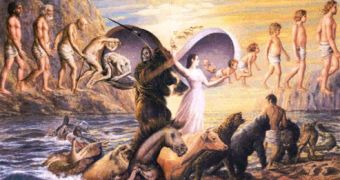What about the lunatic in front of you which after a few glasses of beer claims he was Julius Caesar in a past life...No, wait a moment, he was Napoleon Bonaparte ...And if he thought more, Alexander the Great and so on ...
New researches show that these persons, believing in past lives and reincarnation, may suffer from different types of memory impairments, that's why these people can stick to implausible reincarnation variants.
A Dutch team recruited people who, under hypnotic therapy, were made to believe they experienced past lives.
The volunteers were put to read aloud a list of 40 non-famous names, and then, after a two-hour pause, they were put to detect the famous names from a list made of three types of names: the already read non-famous names, famous names, and non-famous names they had never seen.
Compared to control volunteers who rejected the reincarnation idea, past-life believers presented a double likelihood to fail the test.
They especially displayed the tendency to wrongly assess amongst famous the non-famous names they had read. The source-monitoring error displays difficulty in tracking down the origin of memories. "People who are likely to make these kinds of errors might end up convincing themselves of things that aren't true," said lead researcher Maarten Peters of Maastricht University in The Netherlands.
These people, which - under hypnosis - are repeatedly asked about a potential idea (like a past life) can even turn that idea into a full-blown fake memory. "This is because they can't distinguish between things that have really happened and things that have been suggested to them," said Peters.
Source monitoring errors have also been linked to self-proclaimed alien abductees, twice as likely, by a research made by Richard McNally, a clinical psychologist at Harvard University. McNally believes these errors are the result of some especially vivid imagery skills.
These people were found to be more reactive to imagine experiences than the average persons were and were also more creative. "It might be harder to discriminate between a vivid image that you'd generated yourself and the memory of a perception of something you actually saw," he explained.
Peters found that these people are also more prone to depression and sleep problems, which aggravate their memory errors. "And once people make this kind of mistake, they might be inclined to stick to their guns for spiritual reasons. It may be a variant expression of certain religious impulses. We suspect that this might be kind of a psychological buffering mechanism against the fear of death", said McNally.

 14 DAY TRIAL //
14 DAY TRIAL //